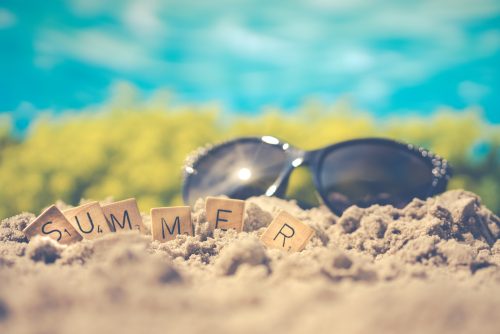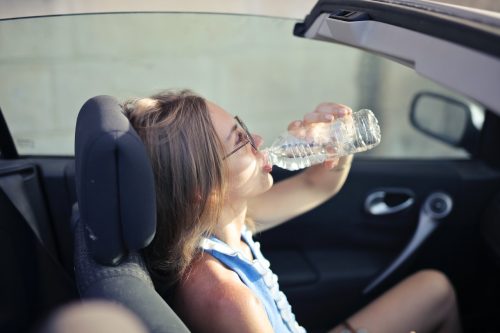HOT SUMMER WEATHER BRINGS GREATER RISK OF HEAT-RELATED ILLNESS, EXPERTS SAY
 With temperatures in the 90s and even 100s expected for much of June, many of us will enjoy the summer sunshine.
With temperatures in the 90s and even 100s expected for much of June, many of us will enjoy the summer sunshine.
Whether gardening, walking, or out on the lake or at one of our local parks, too much sun and hot weather can be a dangerous combination.
Experts say the potential for people who are out in the sun for too long to suffer from heat exhaustion or heat stroke is real.
“Well, it’s very easy to get heat exhaustion. That’s the first step when you get over-heated, Usually, people will have headaches, nausea, profuse sweating, and weakness. That’s the warning sign that if you don’t do something you’re going to proceed to heatstroke,” said Dr. Morgan Wood the Chief of Emergency Medicine at St. Mary’s Sacred Heart Hospital.
Wood said they’re already seeing cases of heat exhaustion in the emergency room and they expect it to get worse as the heat continues.
Wood has some tips on how to stay safe if you work outside or have to be outside for any length of time.
“One of the most important things people need to know is to acclimate yourself to the heat, taking short periods in the heat and then progressing to longer periods as your body allows you to. Or do things either early in the morning or later in the day, like early evenings,” he said.
Both older people age 65 and up as well as children especially need to avoid staying out too long in the summertime heat because those two age groups, according to Wood are more susceptible to becoming overheated.
Additionally, Wood said if you’re going to be outside for long periods of time make sure you stay hydrated.
“The ones to avoid are alcohol and caffeine, like energy drinks that contain caffeine, iced coffee, coca-cola, things like that. The ones you want to have is drinks like Gatorade, PowerAde are better. If you don’t have those then just plain water will do,” Wood said.
The Centers for Disease Control in Atlanta recommends staying in air conditioning as much as you can during times of extreme heat and if you don’t have air conditioning at home contact your local health department to help locate an air-conditioned shelter in your area.
Signs that you are getting overheated include, headache, nausea, confusion, dry mouth, rapid heartbeat and dizziness, and a decrease in sweating.
If you experience those symptoms or see them in someone with those symptoms take immediate action by getting yourself or them into air conditioning or shade and using a cold wet cloth on your forehead and back of your neck and drink plenty of water.
And if there’s no improvement seek medical attention immediately by calling 911.
Even if you have recovered from heat stroke or heat exhaustion, Dr. Wood advises staying inside where it’s cool for a few days to rest and give your body time to fully recover.
